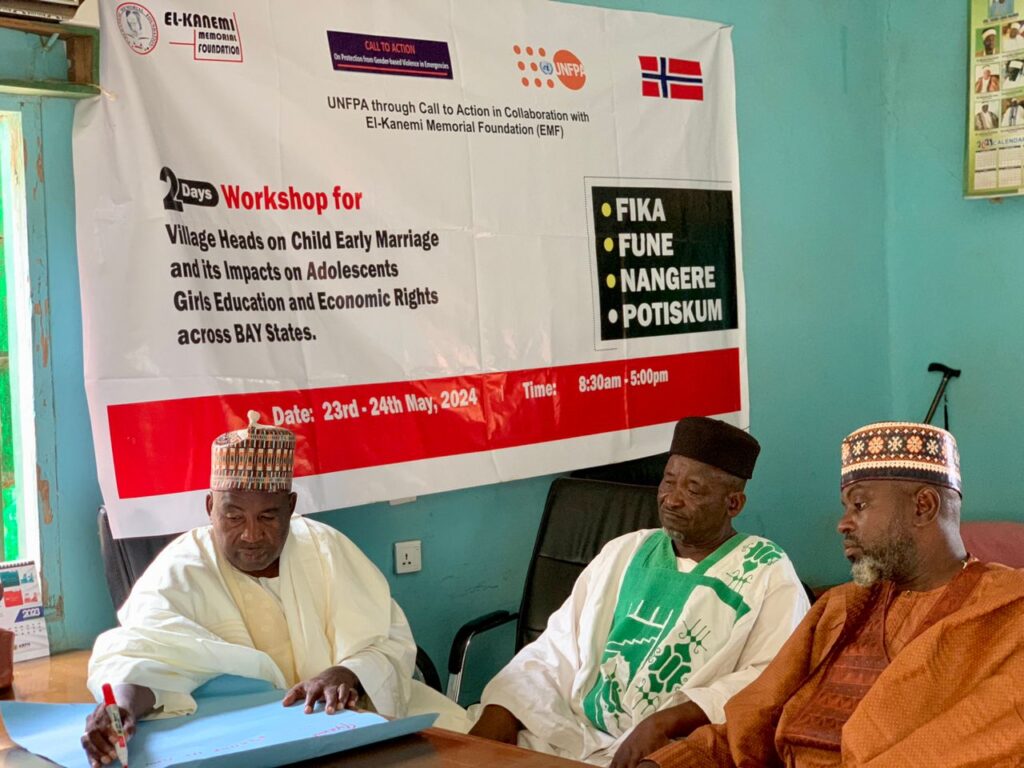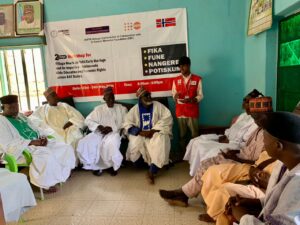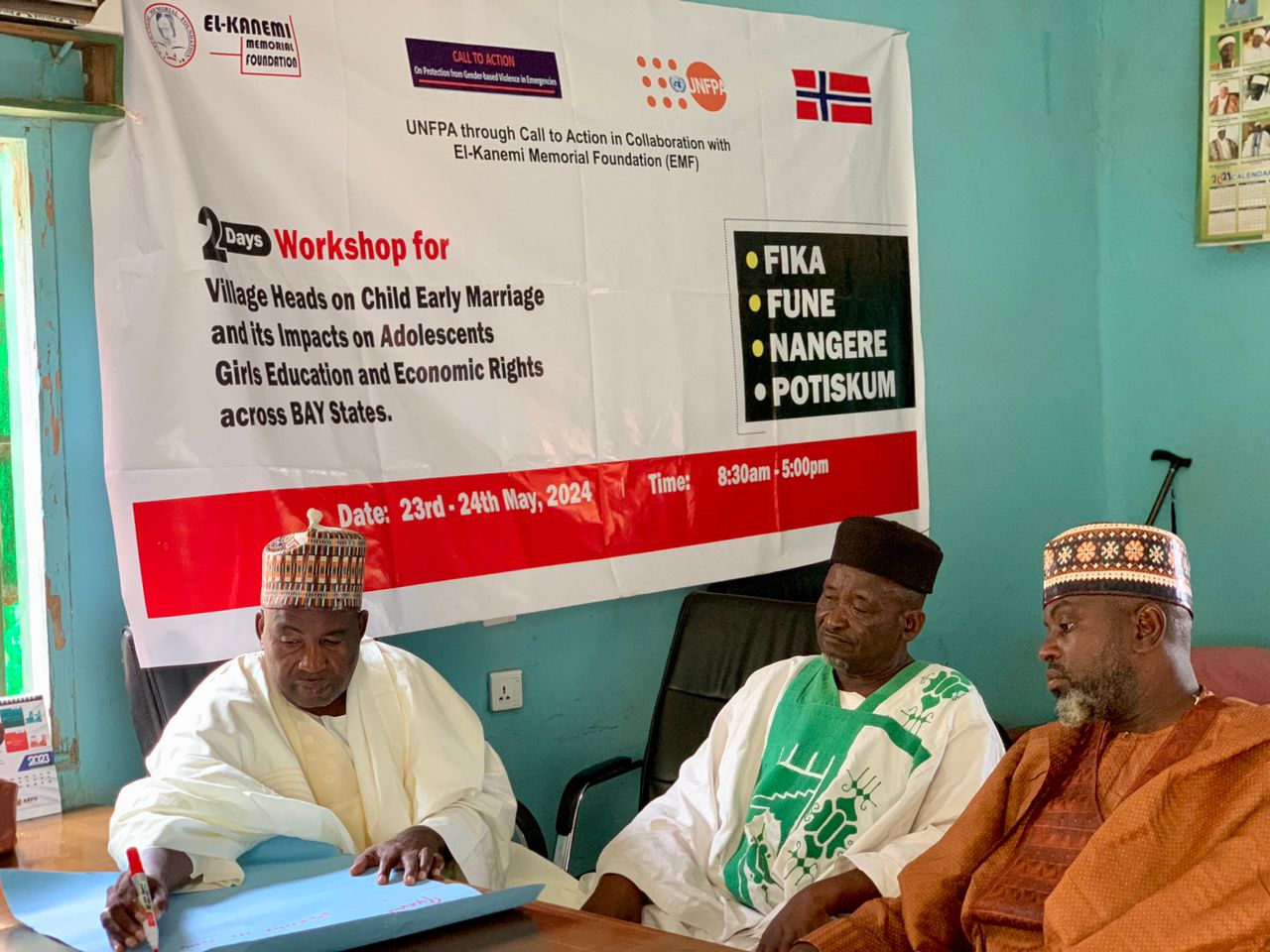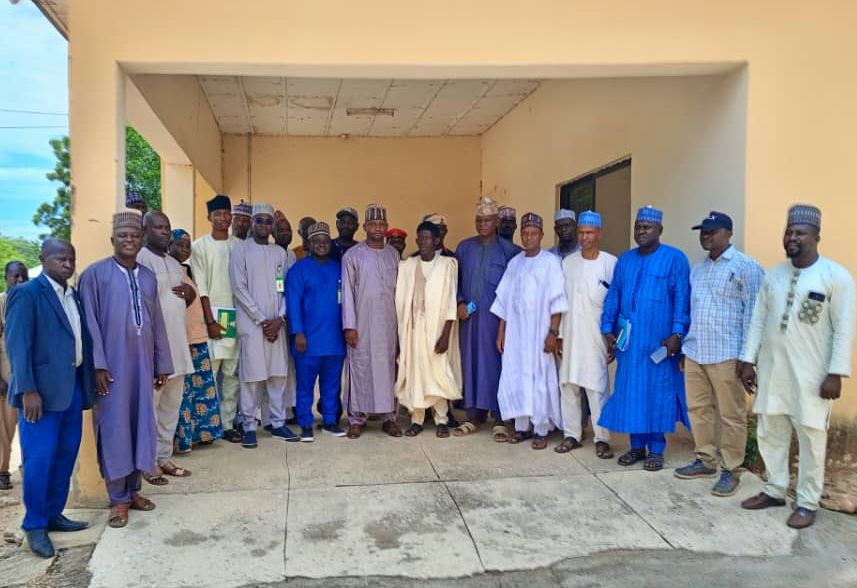
By Atiku Galadima, Maiduguri
In a bid to combat the persistent issue of early marriage, a non-governmental organization (NGO), El-Kanemi Memorial Foundation, has trained village heads from Borno and Yobe states on strategies to tackle the problem.
The training, which was held in Fika town on Monday, aimed to empower village heads with the knowledge and skills needed to address the root causes of early marriage and its far-reaching consequences on girls’ education and social economic rights.
Speaking during the work, Sadiq Abdulhakim, noted that participants gained a deeper understanding of the benefits of girls’ education, including its impact on community development, health, and economic growth. They also acknowledged the devastating effects of early marriage, including hindering development and violating girls’ rights.

According to him, by empowering village heads and community leaders, the El-Kanemi Memorial Foundation is paving the way for a brighter future for girls in Borno, Adamawa and Yobe states.
He explained that uneducated girls are three times more likely to die in childbirth than educated girls and five times more likely to contract HIV/AIDS than their educated counterparts.
He said the cycle of poverty, lack of education, and early death is perpetuating inequality and hindering economic growth.
“This initiative is funded by UNFPA which marks a crucial step towards breaking the cycle of early marriage and unleashing girls’ potential to contribute to community development, government, and beyond.”
“The training emphasized the need for awareness and sensitization among traditional leaders, parents, and communities to protect girls’ education and economic rights. Participants pledged to advocate for girls’ education and encourage parents to send their daughters to school instead of marrying them off at a young age.”
The Foundation has collaborated with the National Council of Traditional Rulers to sensitize communities on the value of educating girls and the dire consequences of early marriage, through a series of workshops, community engagements, and awareness campaigns, traditional rulers seek to empower girls and their families to make informed decisions about their future.
Abdulhakim called for increased investment in girls’ education, particularly in Borno and Yobe states, where people have experienced decades of Boko Haram insurgency. “When we empower girls through education, we can save lives, reduce poverty, and create a brighter future for generations to come,” he said.




